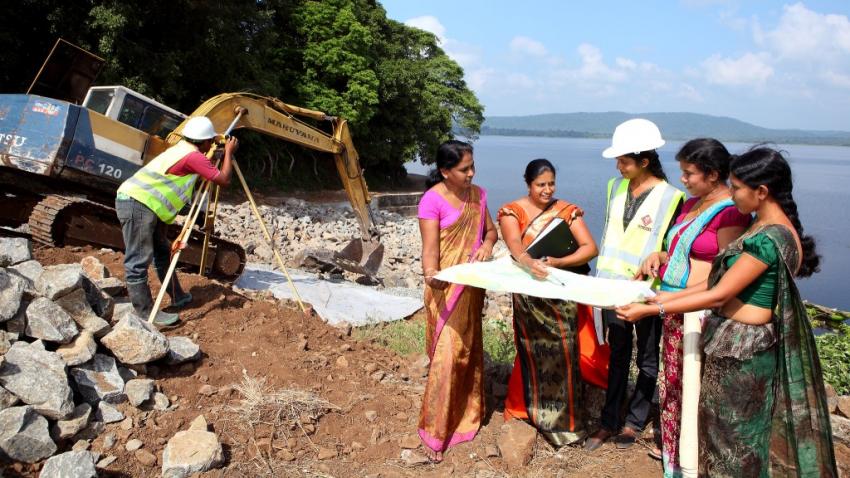“Every engine needs a spark to accelerate,” UN DESA head Liu Zhenmin told the participants of a special event yesterday. Our engine, comprising 17 Sustainable Development Goals (SDGs) and promising to drive the global community towards a just and sustainable future, is in need of that spark. The COVID-19 pandemic is but one crack in the road, and yet it has rattled our engine to its core.
At the High-Level Political Forum (HLPF) special event on SDG Acceleration Actions, organized by UN DESA, panelists assembled the mechanisms already set in motion to spark this global engine.
The event showcased innovative actions being taken by governments, civil society and the private sector; all of which promise to spark not only our progress on the global goals, but also inspiration for partners across the world to use SDGs as a roadmap to recover from the pandemic.
To “build back better, greener and fairer”, Mr. Liu Zhenmin called for accelerated action on SDGs, which “can be considered our policy vaccine for the worst effects of COVID-19.”
His view was shared by Dr. Vera Songwe, head of the Economic Commission for Africa, who asked for SDGs to be considered enablers of progress and prosperity. Dr. Songwe addressed the regional inequity exacerbated by the pandemic, and called for the global community to enable all regions to accelerate, ensuring that nobody, and no country, is left behind.
The panel announced new acceleration actions to build the SDG momentum, including Mastercard’s Center for Inclusive Growth, which has created a digital supply chain payment system in Mexico, allowing farmers to receive 25 per cent more for their crops than they would through cash payments. The Center’s chairman, Mr. Michael Froman, has also committed $1 billion for 25 million businesses owned and run by women.
The UK government has committed £515 million as part of an education package. £215 million will provide 12 years of quality education for girls in Africa, while £300 million has been invested in the International Finance Facility for Education (IFFEd), opening up $5 billion for education projects in lower-middle income countries.
And with over 140 million downloads of their Track & Trace app, 220,000 masks in production every day, and 40 per cent of its energy sourced from non-fossil fuels, India is fighting COVID-19 with SDGs at the heart of its recovery plan.
All panelists stressed the need for solidarity, as no engine can run effectively if its parts do not work together. Mr Amitabh Kant, CEO of the Indian NITI Aayog think tank, expressed his “profound appreciation for frontline workers”. On her part, Ms. Gemma Santana, responsible for the 2030 Agenda in the Presidency of Mexico, acknowledged that the 2030 Agenda is an agenda for all sectors, and all societies.
UN DESA was praised for setting up this global platform, on which all members can assemble their parts of the engine of change.
Photo: World Bank
About UN DESA
UN DESA Products
UN DESA Divisions
- Office of Intergovernmental Support and Coordination for Sustainable Development
- Division for Sustainable Development Goals
- Population Division
- Division for Public Institutions and Digital Government
- Financing for Sustainable Development Office
- Division for Inclusive Social Development
- Statistics Division
- Economic Analysis and Policy Division
- United Nations Forum on Forests
- Capacity Development Programme Management Office

